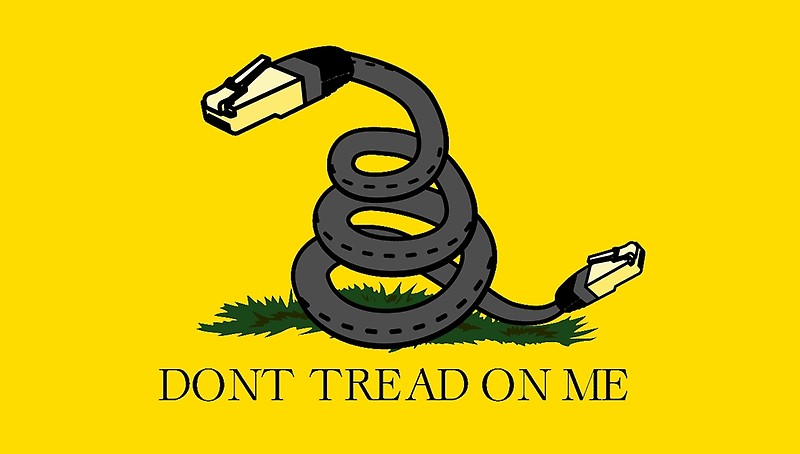
I believe in doing what needs doing — regardless of things that are out of my control. I’ve spent the last several years encouraging publishers get to work finding new business models that work, where others were wringing their hands about the digital disruption. Placing blame on anything except our own failure to adapt is generally misguided. And I still believe that.
Yet there’s one issue on the table right now that’s poised to strike an immense blow to the publishing industry.
The real crux of the issue if net neutrality goes away
“Here’s one more thing for small publishers to worry about: New net-neutrality rules are going to jack up the costs of doing business,” writes Ross Benes in Digiday.
“Rolling back net neutrality would relegate independent publishers to the slow lane of the internet because they’d be unable to afford access to high speeds,” he explains. “Large publishers with more cash can overcome this obstacle, but they’ll be hit with onerous fees and face possible competitive disadvantages from subsidiaries of internet-service providers receiving preferential treatment.”
It’s not just about slower speeds, or a bigger cable bill, common misconceptions among some of the people I’ve been talking to. The big issue is that ISPs have become media brands in themselves, owning publishing brands that could then receive preferential treatment – and shut out competitors and smaller brands that can’t pony up.
“Without net neutrality, ISPs can sell packages or bundles of sites to users. In order to be included in more popular or cheaper packages, publishers could be forced to pay ISPs a fee,” explains Freia Nasher in an excellent article in Medium. Your Internet options could now look something like this:
Image source: Medium.com
“Larger news businesses would be able to strike a deal with an ISP for preferential treatment to the exclusion of smaller news businesses,” said Nikhil Pahwa, editor and publisher at MediaName, in an interview with Nasher.
“For example, Verizon, a US ISP that owns HuffPost, could potentially allow the news website to load faster or make it cheaper for users to access than other news sites” Nasher explains.
The real winners? Clearly, it’s the telecom giants, and the publishers they own. And it effectively puts a lock-down on growth for the also-rans.
What happens to publishers if the FCC gets its way on Net Neutrality?
For consumers, you’ll most likely pay more for the sites you want. For example, Facebook could be a “premium” offering the way HBO or Showtime are on your cable bill.
“You can expect broadband providers to start limiting what you can access on the internet or charging you more to get to the sites and services you regularly use,” writes Steve Kovach in Business Insider. “Also, entrepreneurs and smaller internet companies — the people and startups pioneering new kinds of services or aiming to be the next Netflix, Google, or Facebook — could lose out if they can’t afford the broadband companies’ potential tolls.”
“The end of the rules could end up cementing the dominance of the big tech companies by thwarting their potential competitors and disruptors,” he notes.
As I’m writing this, the vote on the Senate floor that could give Congress the power to force the FCC to maintain the current Net Neutrality protections just ended. It was excruciatingly close – and the Yeas have it, 52 to 47 (best wishes to Senator McCain, who missed the vote for health reasons). This resolution to the Congressional Review Act clears the way for Congress to overturn new regulations from federal agencies within 60 days of implementation, with a simple majority vote.
It’s great news, and a huge hurdle cleared – and the fight is not over yet. The measure to repeal the FCC’s regulations still must pass Congress, and risks a veto by the President.
Take action now
Folks, this really isn’t a political issue — in spite of what you may hear out of Washington. Republican voters fall strongly in favor of keeping Net Neutrality protections in place; lawmakers who voted no are basically ignoring their constituency on this one.
“The survey by the university’s Program for Public Consultation and Voice of the People, a nonpartisan polling organization, concluded that 83 percent of Americans do not approve of the FCC proposal. Just 16 percent said they approved,” wrote Brian Fung in the Washington Post last winter.
“Americans in the survey were far less likely to find the FCC’s arguments for repeal persuasive, and far more likely to agree with arguments for keeping the regulations,” he said.
Will our lawmakers do the right thing for the American people, or side with special interests? A few Republicans did the right thing today and crossed the aisle.
It’s time to convince the rest of them that the Internet must remain free and open without bias. I urge you to get involved and raise your voice. Write your lawmakers; post your position on your website and social media. Stay informed, stay vocal, and stay on your toes. The publishing industry stands to lose massively if the FCC gets its way on this.
